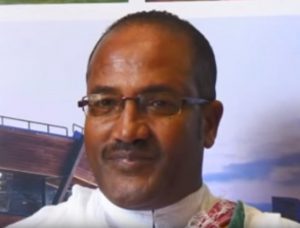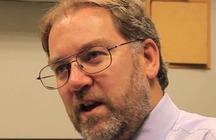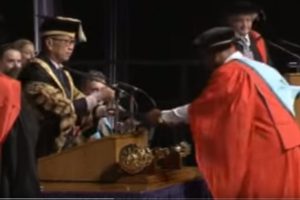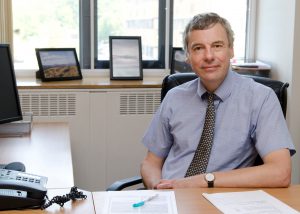May 9, 2018, by Liz Cass
Distinguished scientists elected as Fellows and Foreign Members of the Royal Society
A University of Nottingham alumnus and an honorary Professor have been elected to the Royal Society.
Professors Sebsebe Demissew and Robin Grimes are among 60 eminent academics recognised, as fellows or foreign members, for their contribution to science.
They join names such as Elon Musk and Jim Al-Khalili, as well as long-standing fellows such as the University’s Professor Sir Martyn Poliakoff, in demonstrating a substantial contribution to the improvement of natural knowledge, including mathematics, engineering science and medical science.
Professor Demissew is the first African Foreign member of the Royal Society in its 357-year history. He is keeper of the National Herbarium in Ethiopia, received an honorary doctorate from Nottingham in 2010 and is an Honorary Professor at the University’s School of Biosciences.
Professor Grimes is a nuclear energy specialist, currently Professor of Materials Physics at Imperial College. In graduated from Nottingham in 1982 and is now Chief Scientific Advisor to the Foreign and Commonwealth Office.
Upon hearing the news Professor Grimes said: “I’m absolutely delighted to receive this award which reflects the excellent training and supervision I received over the years, starting at Nottingham.”
The news comes after Professor Ian Hall, Director of the NIHR Nottingham Biomedical Research Centre, was elected to join the prestigious Fellowship of the Academy of Medical Sciences.
Venki Ramakrishnan, President of the Royal Society, said: “Our Fellows are key to the Royal Society’s fundamental purpose of using science for the benefit of humanity. From Norwich to Melbourne to Ethiopia, this year’s newly elected Fellows and Foreign Members of the Royal Society are testament that science is a global endeavour and excellent ideas transcend borders. We also recognise the cutting edge innovation taking place across industry, with many of this year’s Fel lows coming from the thriving tech industry. For their outstanding contributions to research and innovation, both now and in the future, it gives me great pleasure to welcome the world’s best scientists into the ranks of the Royal Society.”
Nottingham and Ethiopia
There is a relationship between The University of Nottingham and universities in Ethiopia going back almost 15 years.
Ethiopian students study in Nottingham, and Nottingham graduate Dr Ignacio Villar was formerly a lecturer at Addis Ababa University. Dr Pete Licence, Associate Professor and Reader in Chemistry at Nottingham, is Adjunct Professor in Addis.
The work of Nottingham academics with colleagues in Ethiopia began with a chance meeting between Professor Sir Martyn Poliakoff and scientists from the University of Addis Ababa, while Professor Sir Martyn was on holiday in Ethiopia in 2003.
Today, Green Chemistry is sufficiently developed there to enable African scientists to participate more fully in the search for new chemicals, processes and techniques that could impact on millions of people.
Much current research is focused on the search for renewable feedstocks and more environmentally acceptable solvents as replacements for petroleum-based products. This makes Green Chemistry particularly relevant to the needs of African countries such as Ethiopia, faced with an increasing demand for chemicals, little or no indigenous oil, and rapidly expanding populations.
Professor Sir Martyn has been instrumental in developing links between Nottingham and Addis Ababa through staff visits, conferences, workshops and collaborative research.
Watch as Professor Demissew is given his honorary doctorate in Nottingham.
Read the full list of fellows and foreign members of the Royal Society or more on Professor Hall’s Fellowship.
No comments yet, fill out a comment to be the first





Leave a Reply